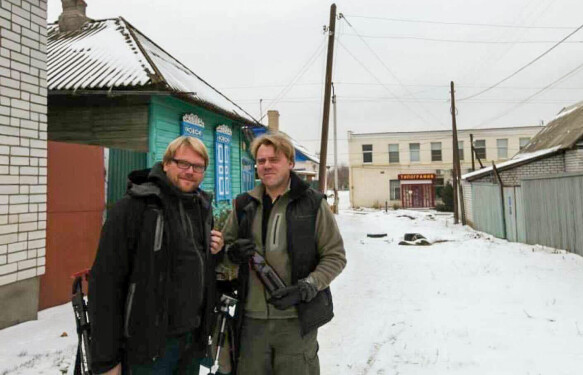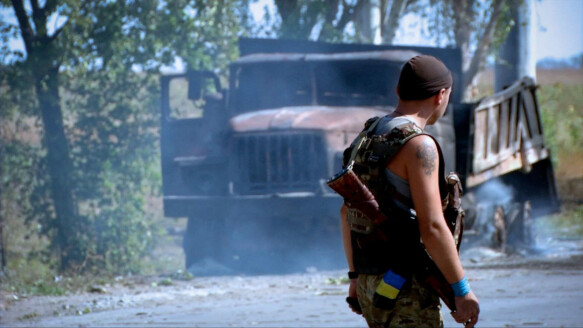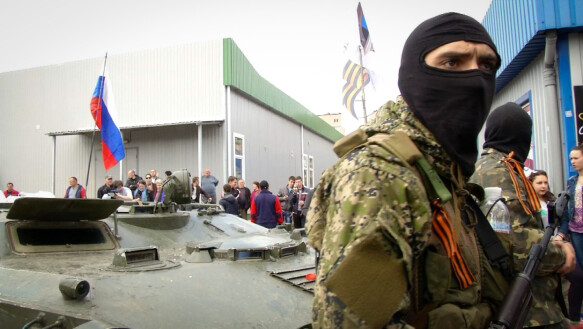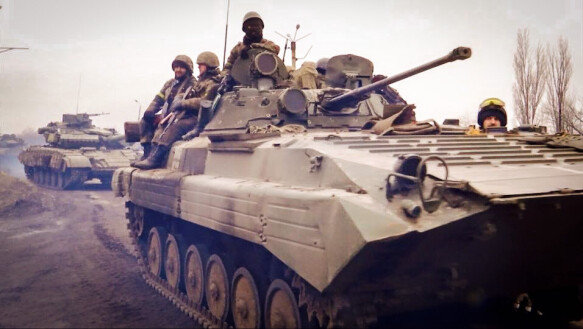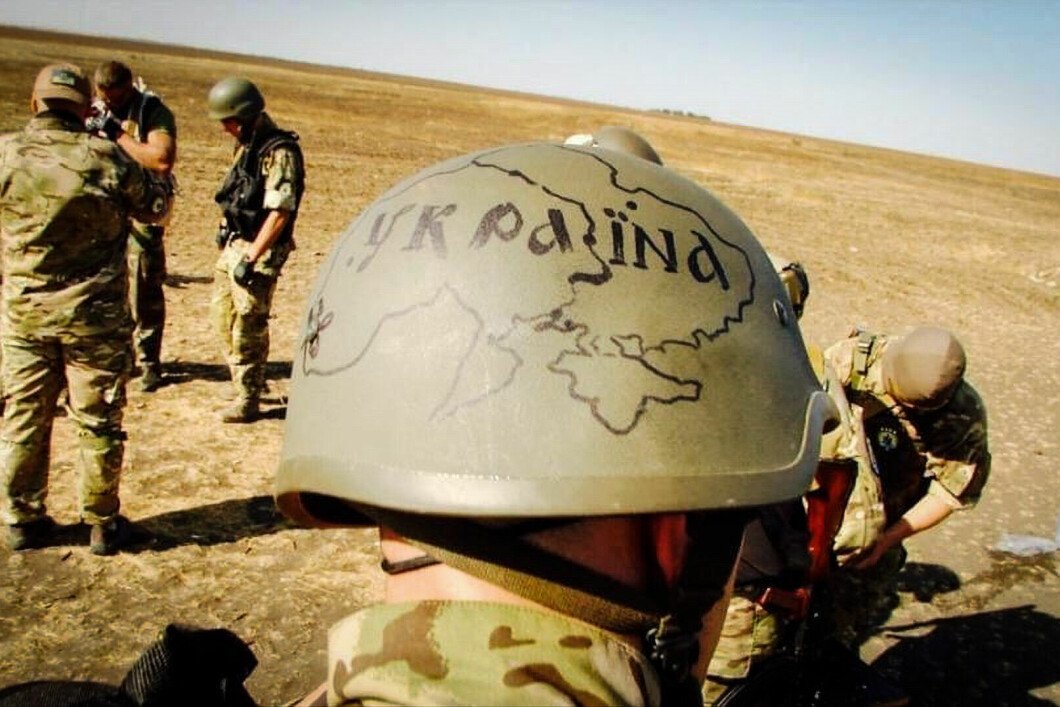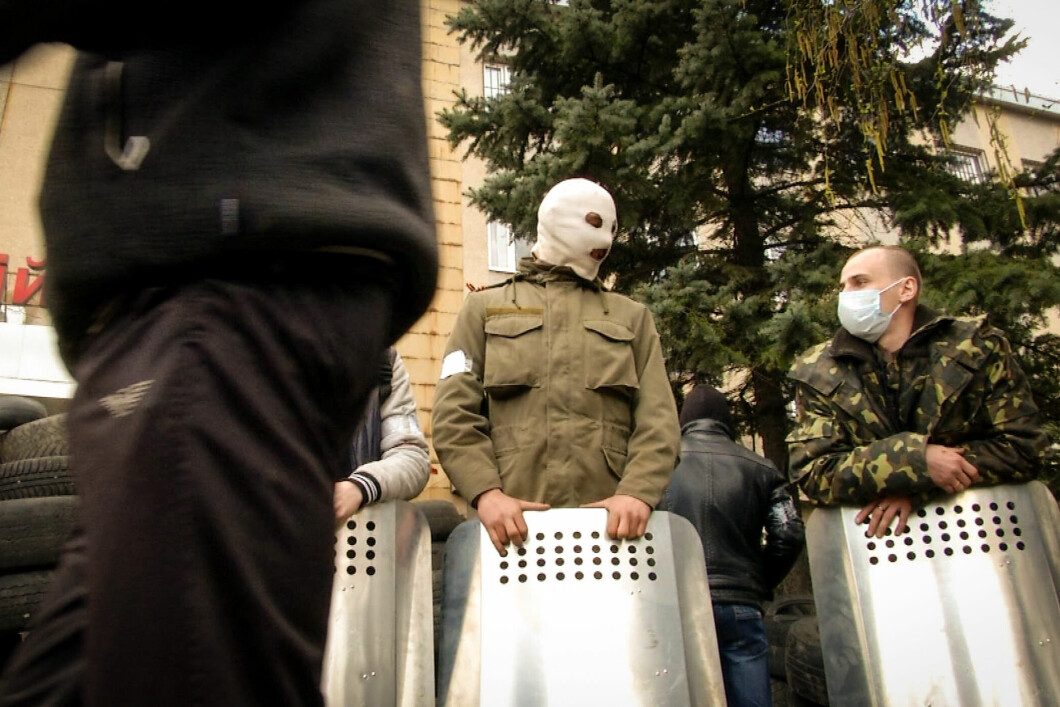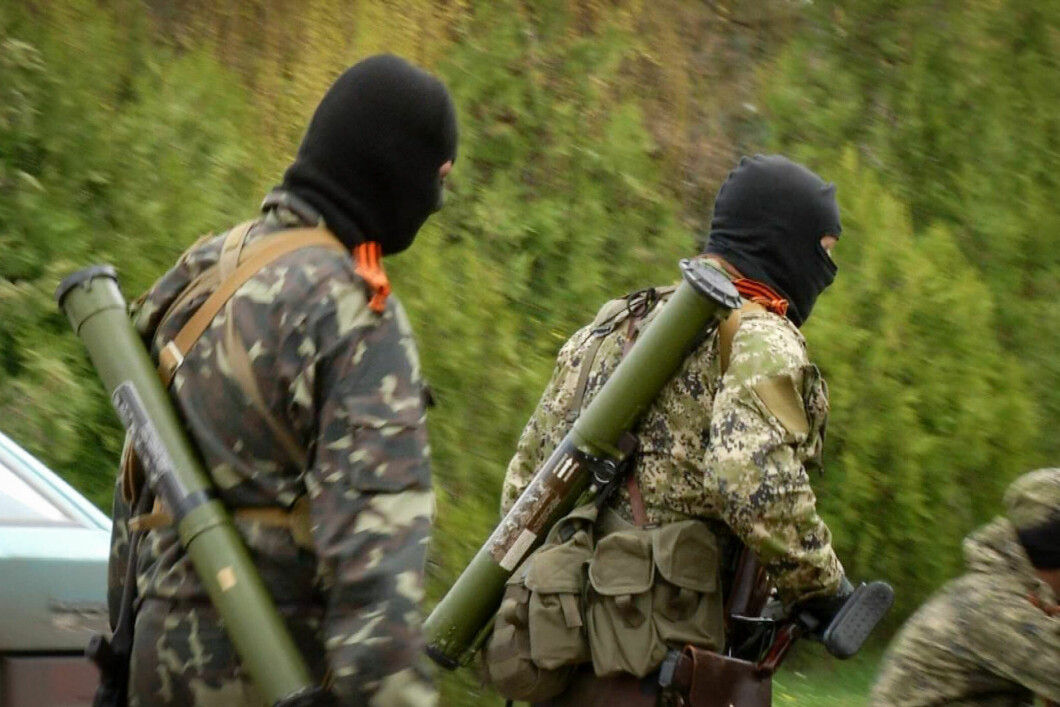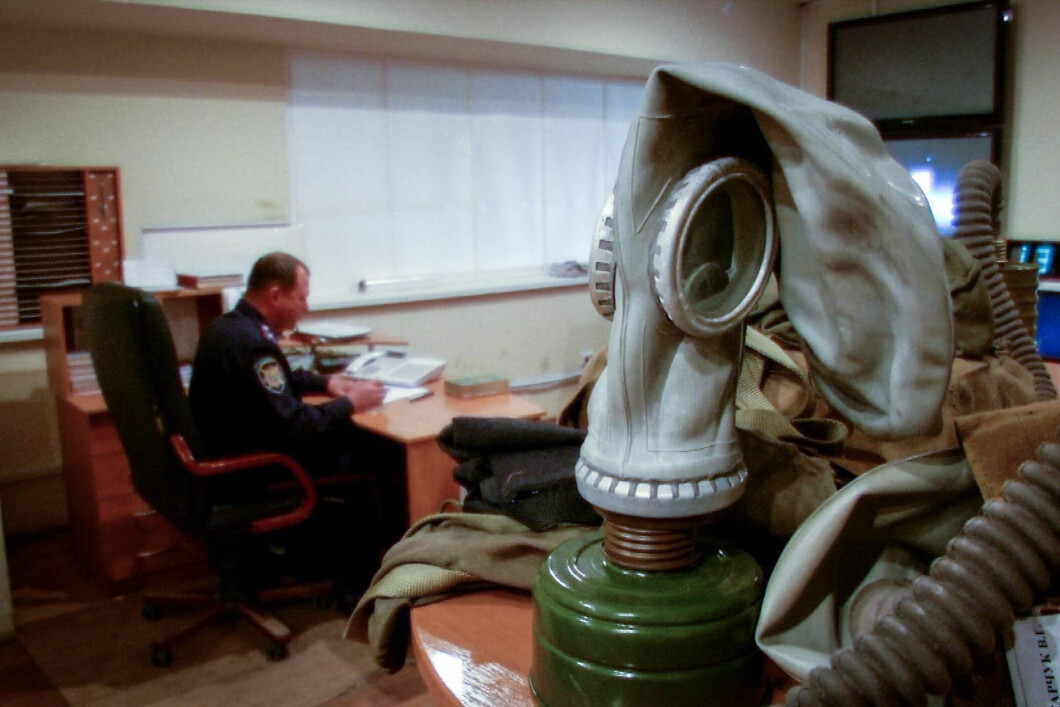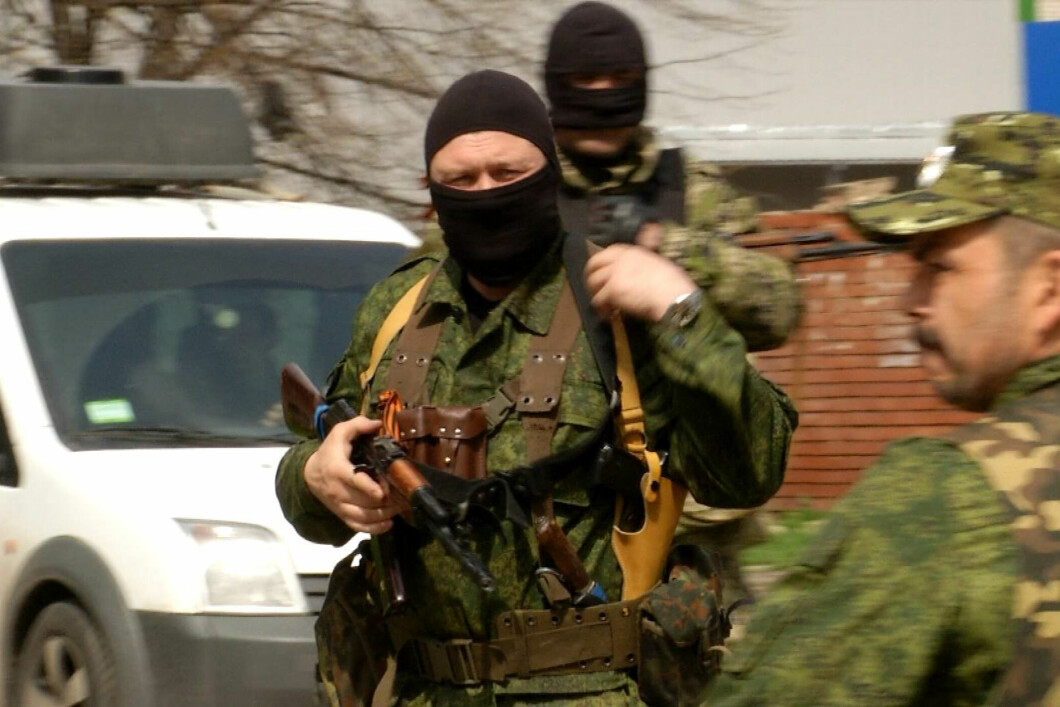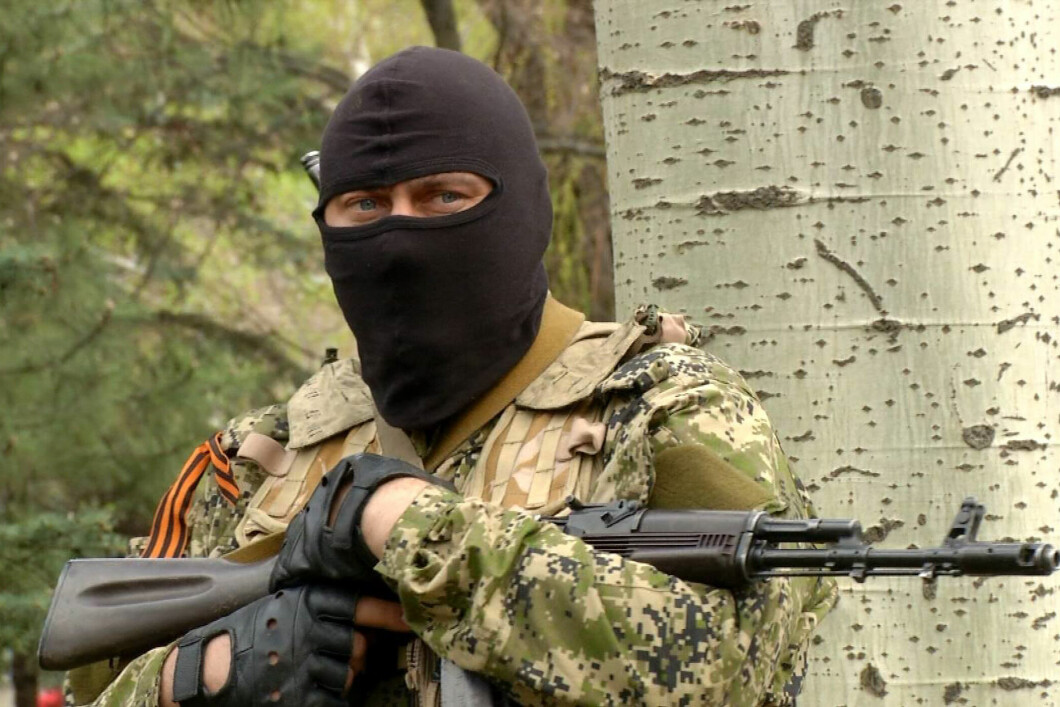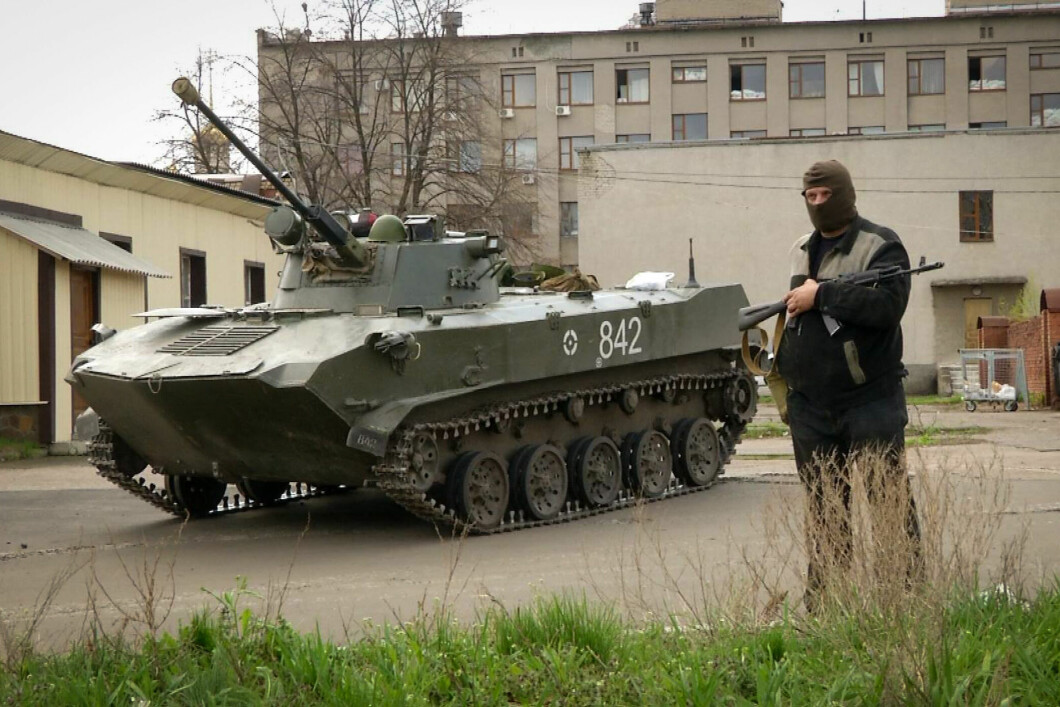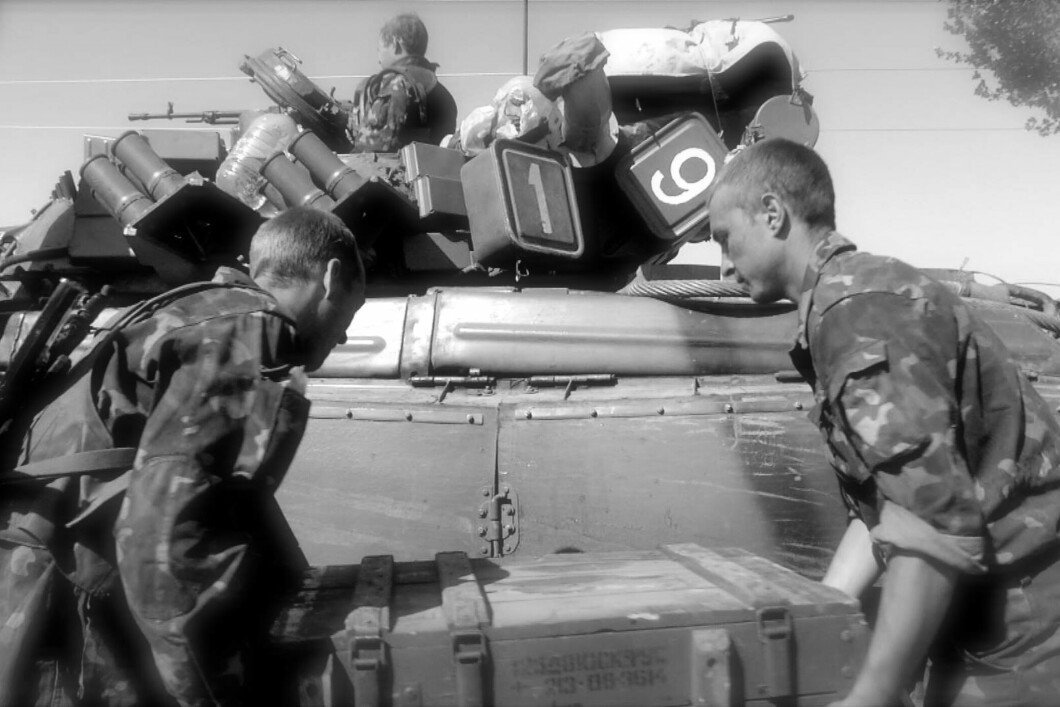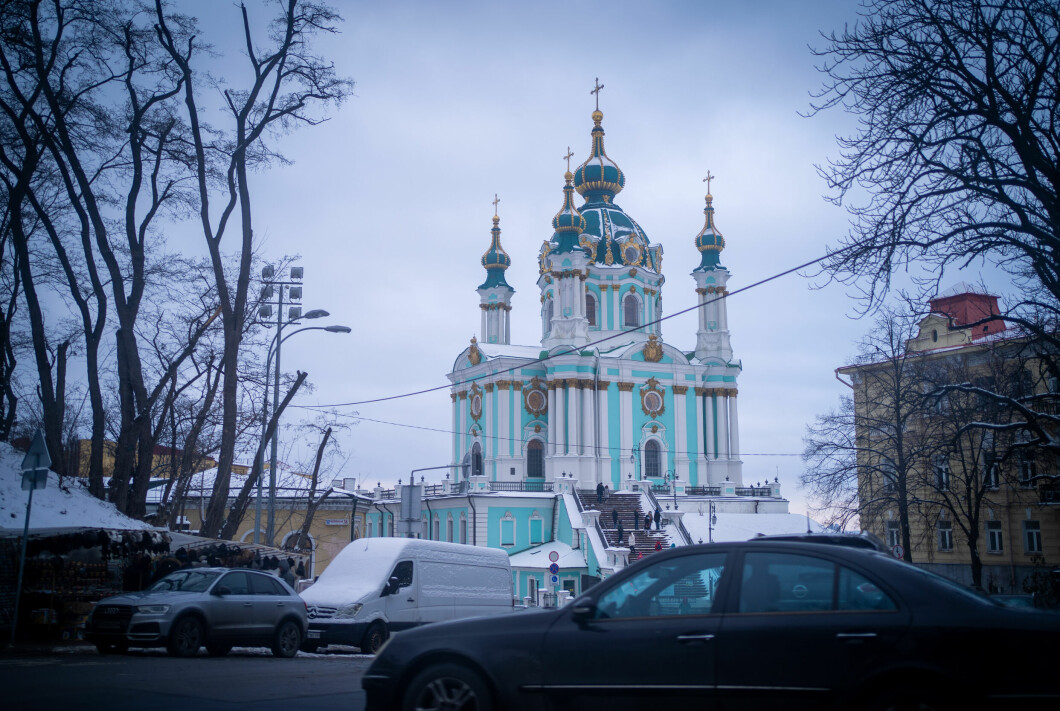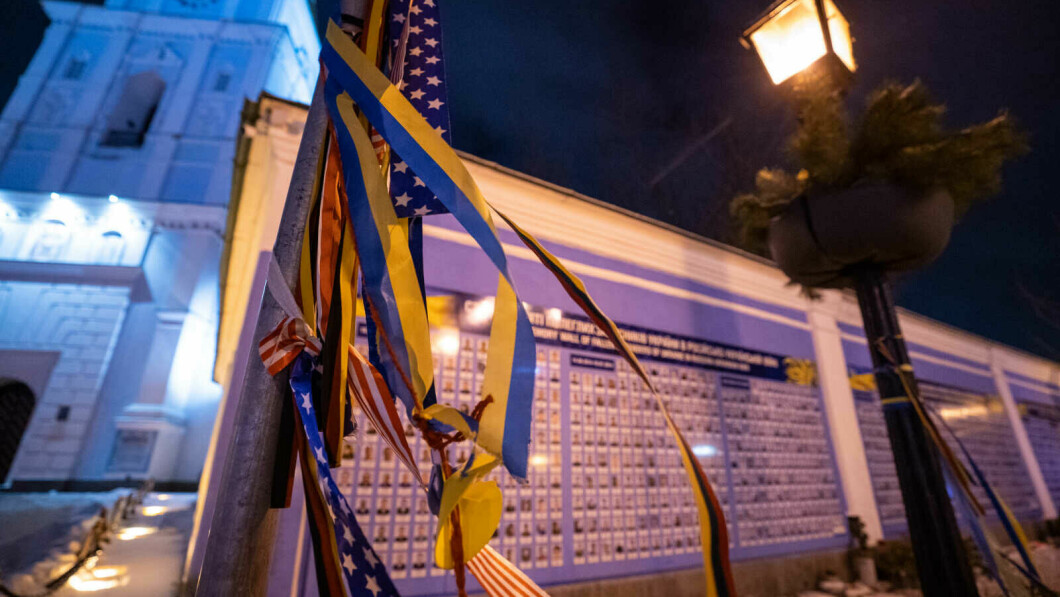It wasn’t even a full year. It was just an ordinary, slightly shocking, 43rd birthday at the Grand Hotel in Mariupol. This evening we were about to have dinner and go to bed, after a long day of work in the Ukrainian city of Azov.
But colleague Austin Bogen secretly warned the hotel staff: Aage was having a birthday. After Stroganov was executed, they politely came up with a little piece of the pie with film stars and good wishes. Russian artillery batteries in the Far East will be part of the celebration.
When I was about to put the fork in the cake, we heard it. First, remove the dump from the cannon fire. Then, after a few seconds of quiet while everyone in the restaurant held their breaths, he shot off the grenades that had fallen. More shots, then shots that look closer.
All that night, we were kept awake by Russian artillery targeting Ukrainian positions near the hotel.
Birthday cake: Staff at the Grand Hotel in Mariupol continued to eat soft cakes while Russian artillery attacked the city. Photo: private
Submitted by: Aage Aune and Øystein Bogen have been working together for TV 2 in Eastern Europe since 2005. This photo was taken in Volgograd, Russia in 2011. Photo: Private
This wasn’t the first war I covered as a photojournalist for TV 2. But it was probably the most terrifying experience. The uncertainty of not knowing where the next bomb will fall. Terrible creepy anxiety.
The only thing we could do was sit back and listen nervously to guess if artillery shots were getting close to us. We knew we weren’t at a military target, but we also knew that in war there is no guarantee of accuracy. There was little sleep, even after the cannon fire had stopped.
The next day we slowly headed toward the front line on the outskirts of town. At a gas station and a few blocks from the apartments near the road, we could see the result of the night bombardment.
Big roadside potholes and black serrated shrapnel holes in buildings. A burning truck was smoking in the middle of the road. This was not an accurate “surgical” attack. A woman in her 30s was killed and four others were injured.
Artelier attack: A military truck ignites with steam and burns on the road outside Mariupol in September 2014. Photo: Aage Aune/TV 2
With Russian support: In 2014, separatists with the support of Russian military forces began a war against the Ukrainian authorities in the Donbas region of eastern Ukraine. Photo: Aage Aune/TV 2
The war in Mariupol subsided in early September 2014 as Ukrainian government forces finally managed to avoid the advance of the Russian-backed rebels. But the attack was not to be the last.
After the defeat of Ukraine and the subsequent bloody withdrawal from Debaltseve In February 2015, the so-called Second Minsk Peace Agreement was negotiated between Russia and Ukraine.
The agreement was to end hostilities and impose a ceasefire. But the deal turned out to be very fragile. And in the years that followed, it laid the foundation for bitter trench warfare along the front lines between the breakaway regions. Donetsk And the Luhansk and the rest of Ukraine.
DEBALTSEVE: In February 2015, Ukrainian government forces lost the Battle of Debaltseve in what is now the Donetsk People’s Republic. Photo: Aage Aune/TV 2
At least 13,000 Ukrainian soldiers and civilians have been killed in the conflict with Russia, and nearly 30,000 have been wounded since the war began.
The situation of the civilian population in the Donbass region today is equally bleak. Nearly four million people are trapped in rebel areas and are almost completely cut off from government welfare programs and infrastructure.
Every day, vulnerable pensioners have to defy snipers and minefields, cross the front lines to be able to increase their pensions at ATMs on the Ukrainian side. The trenches divide families and prevent studies. There is a shortage of food, water and electricity.
The war cast a shadow over the future of an entire generation of young Ukrainians.
The experiences in Mariupol in 2014 were fresh in our minds when we boarded the plane from Geneva to Kiev in January 2022. Foreign Ministers Anthony Blinken and Sergey Lavrov had just met in the city of International Diplomacy on the shores of Lake Geneva, to try to create a certain agreement on the new crisis in Ukraine. These conversations did not change anything. In recent weeks, many European leaders have been forced to return home from visits to Moscow and Kiev, without a peaceful resolution in their bags.
Since the fall of 2021, Russia has amassed more than 100,000 troops along the eastern border with Ukraine and has moved additional forces to Belarus to threaten Ukraine from the north. Russia is demanding concessions and guarantees from the United States that Ukraine will not join NATO. The United States and Western Europe will not be threatened. Not Ukraine either.
According to the United States and a number of Western countries, there is a real danger of a Russian attack that will lead to significant loss of life and have dire consequences for security throughout Europe.
Fear of war: in the capital of Ukraine, the population has to live under the threat of a Russian invasion. Photo: Aage Aune / TV 2
On the streets of Kiev, the mood was oddly calm when we arrived in February 2022. Perhaps this is because people used to live in fear of war, because the war that started in 2014 never ended.
Sons and daughters join the army and train to defend the homeland. The TV newscasts are full of issues related to Russian power building. Russian military units are now just a four-hour drive north of the capital, across the border with Belarus.
Excited: At one of the walls of memorials for those killed in the war, someone lit a candle. Nobody knows what will happen tomorrow. Photo: Aage Aune / TV 2
There are regular hacker attacks and bomb threats against schools and public buildings. School children should practice evacuation to shelters every day. Obviously, people are really scared.
I myself feel the fear of war, in the raw mist of the Old Town on the banks of the Dnieper. The creeping fear and uncertainty about the brutality that might occur in the next second is the same as during my birthday in Mariupol almost eight years ago.
Channel 2 TV explains: Will there be war in Europe?

“Organizer. Social media geek. General communicator. Bacon scholar. Proud pop culture trailblazer.”



